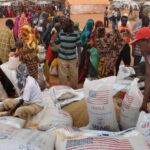In a stunning turn of events, a South African politician has found themselves at the center of a national uproar after visiting a controversial fugitive pastor. This incident has sparked heated debates about accountability, religious influence in politics, and the broader implications for governance in South Africa.
The politician in question, who serves as a member of the National Assembly, visited the pastor, who is currently evading law enforcement over allegations of fraud and abuse. The pastor, well-known for his charismatic sermons and large following, has been accused of defrauding his congregation and engaging in questionable business dealings under the guise of his religious activities. His actions have not only drawn legal scrutiny but have also raised ethical questions about the intersection of religion and politics.
The visit, which was publicized via social media, drew immediate backlash from various factions within the government and civil society. Critics accused the politician of condoning the pastor’s alleged criminal activities and undermining the rule of law. The outcry was exacerbated by reports that the pastor had previously been implicated in multiple scandals, which further stained his reputation and raised concerns about his influence over vulnerable communities.
Political analysts have suggested that the politician’s visit may have been an attempt to garner favor among the pastor’s significant following, especially in light of the upcoming election season. South Africa has a complex relationship with religion, where pastors often wield considerable influence over their congregants. This phenomenon has led some politicians to seek endorsements from religious leaders to enhance their electoral appeal, thereby blurring the lines between governance and religious authority.
The fallout from the visit has seen coalition partners within the ruling party distance themselves from the politician, emphasizing that support for any fugitive undermines the integrity of their political ideals. The leadership has called for an internal review of the visit, suggesting that such actions could have serious ramifications for the party’s image and electoral prospects.
Public opinion has also played a significant role in shaping the narrative. Many South Africans, particularly those who have faced the brunt of corruption and maladministration, have condemned the politician’s actions as emblematic of a broader problem: the failure of leadership to prioritize accountability and ethics. Social media platforms have been flooded with calls for the politician to resign, alongside campaigns urging a strict interpretation of anti-corruption laws.
In response to the mounting criticism, the politician issued a statement attempting to clarify the intent behind the visit. They claimed that it was an opportunity to discuss social issues affecting their constituents and to engage with community leaders. However, many found these explanations unconvincing, viewing them as an attempt to deflect responsibility for their actions.
Legal experts have pointed out that the politician’s visit to a fugitive raises concerns about the potential for complicity in ongoing criminal activities. Observers have noted that in a democratic society, the expectation is for elected officials to uphold the law and act in the best interests of their constituents. This incident could potentially lead to legal repercussions for the politician if found to have violated any laws regarding the harboring or supporting of fugitives.
As South Africa grapples with the impact of this scandal, it serves as a poignant reminder of the critical need for transparency and ethics in politics. The intertwining of religious influence and political ambition will likely be scrutinized more closely in the future, reinforcing the notion that leaders must be held accountable not only for their actions but also for the company they keep. The fallout from this incident may well reshape the political landscape as South Africans demand more integrity from their elected officials.
Email Us on editorial@nnafrica.com













